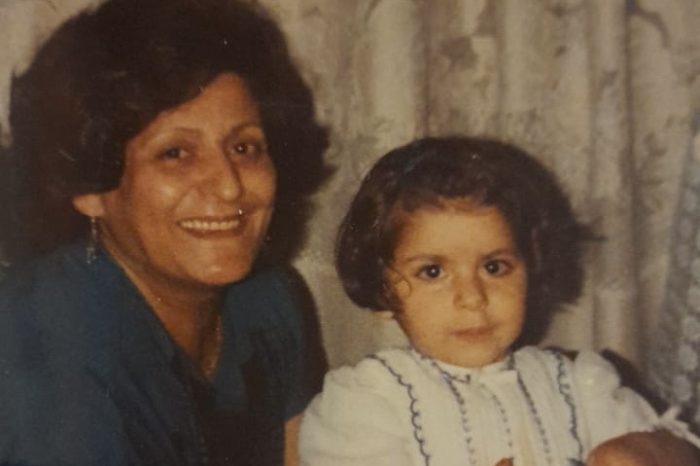Her body was lifeless.
As soon as they dressed her for viewing, it showed signs of decomposition.
I looked at her chest, expecting a sign of life. I wanted her to breathe, but she remained still. Dressed in her favorite grey coat and black skirt, memories from my childhood with her started to haunt me.
My father held back his tears as my aunts kneeled at their feet and said their final goodbye. As for me, I weeped, especially when I saw the hearse heading to the cemetery.
My Grandma was always surrounded by her big family. She lived long enough to meet her grand-children and great-grandchildren. But now she left, alone, and it broke my heart.
Death is such a hard topic for me. What happens when we leave? Where do we go? Looking at my Grandma’s perished body, I couldn’t see “her.” Without her voice, her food, her touch, and her stories, she was nothing but flesh. She went…somewhere, and I couldn’t tell where “she” was.
A core Buddhist teaching kept coming to mind as I was trying to process what had happened. I thought of impermanence (anicca) and how Buddhists believe that it’s inevitable. It is, in fact, the cornerstone of Buddhism. We see signs of decay everywhere around us. From the change of seasons to the death of our loved ones, an undeniable truth hits us whenever we witness an end: nothing is meant to last.
“What is born will die, what has been gathered will be dispersed, what has been accumulated will be exhausted, what has been built up will collapse and what has been high will be brought low.” ~ Sogyal Rinpoche, The Tibetan Book of Living and Dying
Endings bring us so much suffering and pain (dukkha). Because the thought of continuity is automatic in our minds, change often surprises us. Although we subconsciously know we can’t escape what’s destined to disappear, we fall into despair whenever death takes someone or something away from us. The saddest part is that we don’t feel concerned with death. Hundreds of people attended my Grandma’s funeral. As I stared into their faces and presence, I knew we had something in common: we were all oblivious to the quick passage of time. Death is coming for us all.
What can we do about impermanence? Nothing, really. I can’t shield the ones I love from death or sickness or old age. The only thing I can do is to keep going. In Buddhism, we understand that impermanence is not a problem. It’s not some kind of illness that we need to heal. Impermanence is the essence of life, and we need to embrace it, appreciate it fully. That’s the only way to freedom. I discerned that truth as I watched my Grandma’s body turn sallow. I let her go, accepting that I, too, will one day disappear.
“Everyone must die at some point; an estimated 250,000 human beings do so every day. People close to us have died and will die. Yet we are still shocked and saddened when a loved one passes away, and we continue to search for the fountain of youth or a secret formula for long life.” ~ Dzongsar Jamyang Khyentse, What Makes You not a Buddhist
Accepting death and that nothing is permanent helps us to become liberated. That’s how Siddhartha Gautama (the Buddha) found true liberation. Instead of trying to reverse the path to death, he understood the dissolving nature of life. Recognizing impermanence means we recognize that not everything is under our control. I can’t bring back my Grandma, but I can appreciate the whole cycle of life—birth and death—without trying to grasp onto what’s destined to dissolve.
~


 Share on bsky
Share on bsky





Read 2 comments and reply